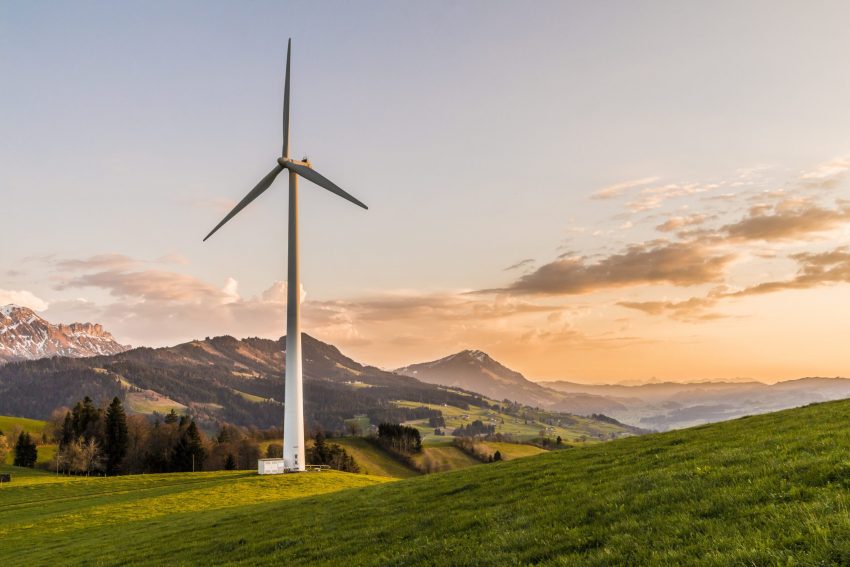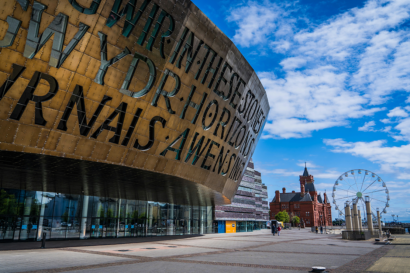AG INSIGHT | 14/05/2024
FOMO on green investment: what businesses need from the next government

The UK is reaching a turning point as we approach an election later this year. To remain on track for a 1.5C-aligned pathway to net zero, ambitious policy programmes are required from all parties before the public goes to the polls. Decarbonisation has always been of critical importance to prevent the worst impacts of climate change, but it’s becoming increasingly clear that, during a time of stagnation and uncertainty, it will also be vital to revitalise the UK economy.
Recent research from the International Energy Agency outlines that clean energy has become a core driver of economic growth in the world’s most successful economies. It finds that clean energy sectors accounted for 10 per cent of global GDP growth in 2023 and delivered $320bn in new economic activity.
This evidence, alongside the surge in green investment driven by the US Inflation Reduction Act (supporting a 2.5% increase in GDP), and similar trends in China and the EU, demonstrates that any credible plan strengthen the UK’s economy during this challenging period must place the net zero transition at its heart. Though the UK cannot directly match rival subsidies, it must look to leverage existing national strengths to plot a pathway to a prosperous low-carbon future.
This is a view reflected by major businesses that the Aldersgate Group regularly engages with both within and outside our membership. They recognise that decarbonisation will be a major driver of growth in the future, and their actions reflect that. The public is also largely on board, with recent local elections resulting in a strong showing for candidates that placed climate at the heart of their campaigns.
Exactly what is needed to deliver the UK’s net zero transformation came to the fore in recent weeks at two insightful events hosted by the Aldersgate Group, featuring expert perspectives from leaders in business, politics, and civil society discussing why the UK must move faster, and the policy required to do so.
In conversation with Rt Hon Theresa May MP and Chris Stark
The first of these discussions featured the outgoing Chief Executive of the Climate Change Committee, Chris Stark (now at the Carbon Trust), in conversation with former Prime Minister Rt Hon Theresa May MP, with questions from Aldersgate Group Executive Director, Rachel Solomon Williams. Together, they outlined a robust economic and social case for rapidly accelerating action on emissions.
Key highlights from the discussion included a caution from both speakers on greenhushing and the ongoing polarisation in the net zero debate. To tackle this, they emphasised that messaging on climate must capture the population’s imagination and drive cross-party consensus, noting that a positive narrative on the economic and social benefits of action will ensure the public are brought along with the transition. Increased growth and lower energy bills will ultimately provide benefits for people across the country.
The growth of international competition for green investment also remained a key theme. Chris Stark made a clear point that the UK must do more to attract investors, through policy certainty and a positive programme of action. He highlighted that there should be a greater “fear of missing out” from UK leaders, as rival economies attract increased efforts to secure. This is a view reflected in his recent thoughts as part of an interview with the Financial Times.
Both speakers made a clear call to action on climate adaptation too, with the UK facing impacts from climate change even as emissions are lowered. There are significant opportunities here for the UK to learn from other countries’ approaches to adaptation and mitigation. South Africa’s approach to climate adaptation was highlighted in particular, with its own body to deal with both adaptation and ensuring a just transition.
Enabling policy progress with the right infrastructure
The second set of insights coordinated by the Aldersgate Group focused on the role of the planning system in creating a low-carbon energy system. Enabling a thriving renewables sector is fundamental to delivering net zero and securing much-needed economic benefits. The new Minister of State for Energy Security and Net Zero, Rt Hon Justin Tomlinson MP, joined us at this discussion to outline his vision for spatial planning in the energy sector.
His remarks, and those of an expert panel featuring representatives of Energy UK, Ofgem, Phoenix Group and National Grid ESO, covered a number of crucial considerations for the sector. The importance of community input was a common thread throughout, with public buy-in holding the key to successfully delivering the energy system that the UK needs.
There was also a broad consensus that wider coordination and a coherent cross-government approach was critical to enabling the development of low carbon energy infrastructure. This is a long-standing ask of the Aldersgate Group, as robust delivery plans require a collaborative and joined-up approach from all in government.
Crucially, nature played an important role in this discussion. There is a delicate balance to strike between developing the energy infrastructure that the UK urgently needs, and doing so in a way that safeguards and restores biodiversity. A new project from the Aldersgate Group, CPRE and Renewable UK will aim to build on this point and create a consensus between nature groups and developers on how to achieve this.
A programme to deliver a thriving net zero economy
The Aldersgate Group’s Programme for Government, informed by the expertise of our membership, builds upon many of the points made at these events.
This new publication outlines a series of priority policy recommendations for the next UK Government. It acts as a blueprint to kickstart the UK’s next steps towards lowering emissions and driving prosperity across the country. It’s crucial that all sectors of the economy are considered as part of delivery, and that a coordinated approach is prioritised by government. The report itself highlights this in separate sections covering eight fundamental parts of the UK economy.
As the report highlights, driving down emissions and restoring the natural environment will deliver economic growth and additional benefits across other systemic challenges that we face. Private investment in net zero could catalyse a 6.4% growth in UK GDP by 2050, equivalent to £240bn. While biodiversity provides fundamental widespread benefits including sustenance, pollination of crops, soil regeneration, human wellbeing and climate resilience.
Businesses are on board with the net zero transition and nature restoration. What they now need from the next government is policy that enable them to accelerate progress and deliver major benefits for the UK.


